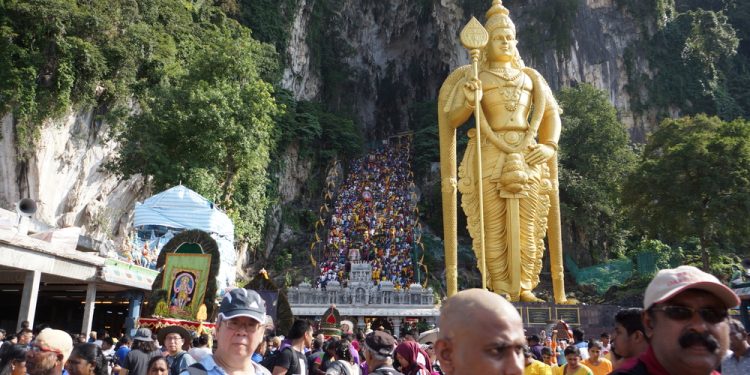
Thaipusam
Thaipusam is a Hindu festival observed by the Tamil people during the Tamil month of Thai, which falls around January or February on the Gregorian calendar. It is celebrated in the Caribbean, India, Sri Lanka, Malaysia, Singapore, South Africa, Thailand, and Guadeloupe, as well as a few other countries. The name of the festival is a combination of the month in which it occurs and the name of the star Pusam. During the festival, this star is at its highest point.
History of Thaipusam
While there are several legends upon which Thaipusam is based, one of the more frequently told ones involves a demon named Tharakasuran. According to legend, Tharakasuran caused considerable trouble for both the saints and the rishis. So much so, in fact, that Lord Murugan was summoned by his parents—who happen to be Lord Shiva and Parvati—and they tasked him with the destruction of the troublesome demon, which he accomplished without wasting a moment. On his quest, he took eleven weapons that his father, Lord Shiva, gave him, as well as a weapon called “The Vel” that was given to him by his mother. Using these weapons and his great intellect, he was able to defeat the demon on the day of Poosam Nakshatra in the Tamil month of Thai.
Thaipusam Celebrations & Customs
More than a million faithful, as well as tens of thousands of tourists, visit the Temple of Batu Caves located in Gombak, Selangor, adjacent to Kuala Lumpur. Some visitors are shocked to learn that many of the devotees at this temple appear to be in some sort of trance. However, that is often not the most shocking part of the ceremony. Some of the faithful pay penance to Lord Murugan by piercing their flesh with hooks.
In Singapore, this day is also a public holiday, and many of the faithful begin the festival by starting a procession at dawn at the Sri Srinivasa Perumal Temple. While marching in this parade, processioners practice Kavadi Attam—a ceremonial sacrifice that consists of carrying milk pots as offerings and wearing a heavy semi-circular piece of wood called a Kavadi, which is balanced on the shoulders like a symbolic yoke.








